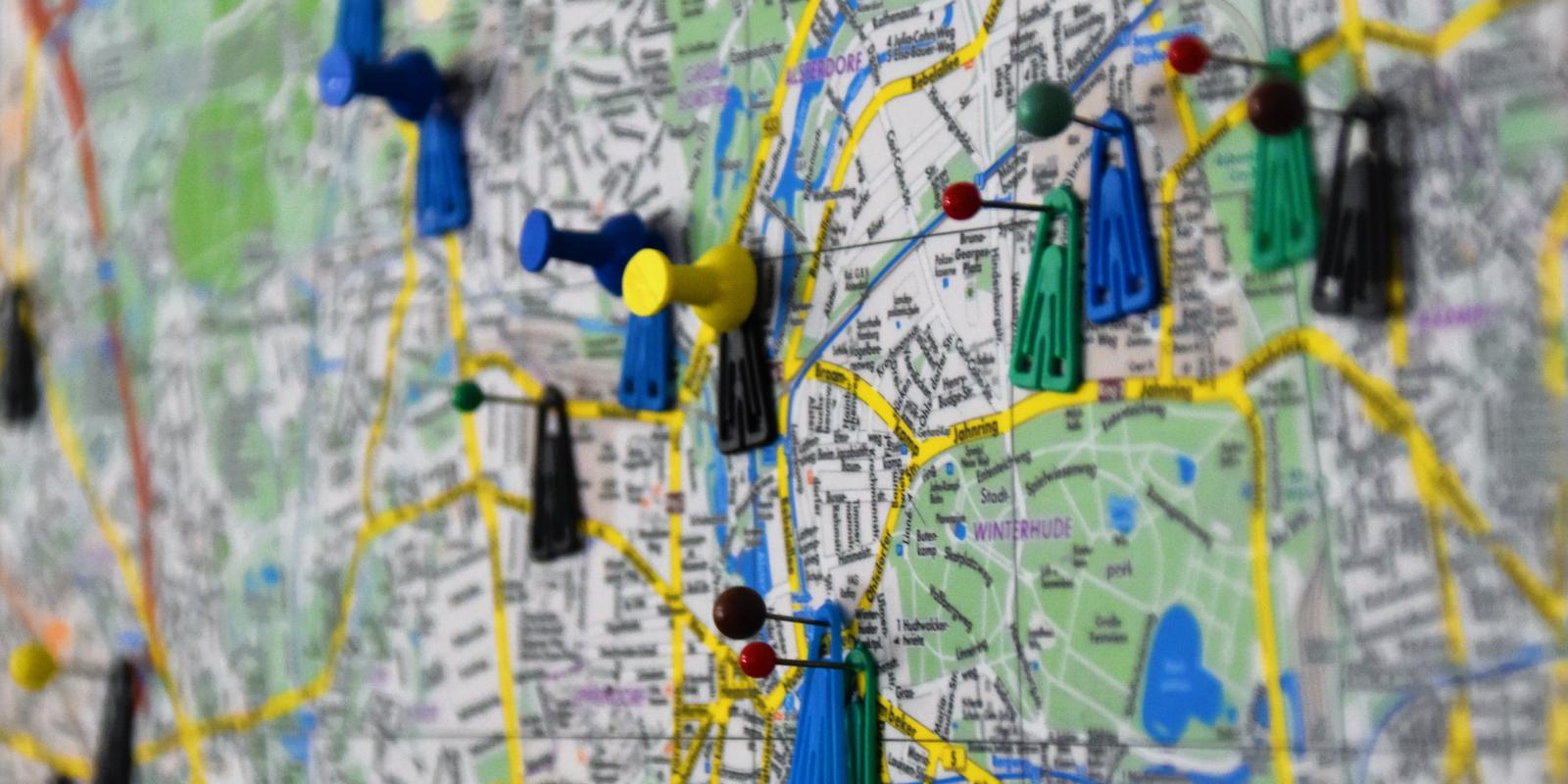
An Impressive Track Record: Moustafa Youssef’s Research in Location Detection Technology Hailed Globally
Moustafa Youssef, professor in the Department of Computer Science and Engineering, has made considerable strides in his research on employing mobile devices for location tracking technology — gaining recognition from top educational and scientific institutions, as well as major tech companies.
Youssef’s research examines the limitations of GPS tracking in indoor and outdoor localization. "For example, GPS doesn't work efficiently in urban canyons, within buildings and inside tunnels where the signals are blocked,” he explained, adding that GPS services also typically drain mobile phone batteries.
Youssef and his team work on providing different technologies for indoor localization with no GPS reach and outdoor localization, "providing better accuracy and consuming only one-tenth of the mobile phone energy consumed by the GPS." Their Dejavu technology , which provides an accurate energy-efficient outdoor localization system, won the Best Paper Award in the prestigious 2013 Association for Computing Machinery Special Interest Group on Spatial Information (SIGSpatial) Conference.
Increased accuracy in such technologies can improve outdoor and indoor navigation, asset tracking, directed ads, emergency services response time and contract tracing for COVID-19 exposure.
Youssef was recognized last month as a fellow of the Association Computing Machinery (ACM), becoming the first in the Middle East and Africa to join this membership grade, which acknowledges the top 1% of ACM members.
“It is an honor and responsibility to be named an ACM fellow,” he remarked. “I share with my research team the responsibility of keeping the bar high and continuing our achievements and recognition worldwide."
He also joins eight other AUC faculty members this year in being recognized as one of the top 2% most impactful scientists globally by Stanford-Elsevier's Scopus. The list is created by experts at Stanford University, based on data from Elsevier's Scopus. It includes the top 2% scientists in 22 scientific fields and 176 subfields, and provides standardized information on citations, h-index, co-authorship-adjusted hm-index, citations to papers in different authorship positions and a composite indicator.
Apart from his work at AUC, Youssef is the founder and director of Egypt's Wireless Research Center of Excellence, which has acquired millions of dollars in research funds from local, regional and international funding agencies.
The center includes award-winning researchers from all over the world who have published their work in the top journals and conferences in the field and have multiple issued and pending patents.
Moreover, students who work in the center typically move on to join the top universities and research labs worldwide for internships and to continue their studies.
“Many of the center alumni are working [at] world leading companies and worldwide reputable universities from Japan in the east to USA in the west, in addition to contributing to different Egyptian universities,” Youssef said.
Recognized among the top researchers of location tracking systems and technology by different industry players, Youssef and his team have been funded by Microsoft Research, Google Research, Intel Research, Uber Research, Vodafone Egypt, The Egyptian Science and Technology Development Funds, The Egyptian National Telecommunication Regulatory Authority. “Several big companies have licensed our research,” Youssef said, adding that a number of startup companies employ his team’s technology as their differentiator in Egypt, the Gulf and the U.S.
The professor’s earliest research was aimed at leveraging WiFi signals to provide indoor localization as a value-added service to WiFi networks. This research led to the design and implementation of the Horus WiFi-based location determination system, for which he won the University of Maryland Invention of the Year award in 2003.
Along with his team, Youssef continued to explore innovative means to address indoor localization and eventually launched CrowdInside, a crowdsourcing-based system that uses smartphone sensors to automatically map out the floor plans of a building.
On his own, Youssef has received numerous awards, such as the 2010 TWAS-AAS-Microsoft Award for Young Scientists, the 2013 and 2014 COMESA Innovation Award, the 2017 Egyptian State Excellence Award and multiple Google Research Awards. Since 2015, he has been appointed as a visiting professor at the National Institute of Informatics, Japan, and has also been a regular visiting researcher at Google since 2016. Moreover, he was named a fellow of the Institute of Electrical and Electronics Engineers in 2019 for contributions to wireless location tracking technologies.
Moving forward, Youssef and his team are exploring what he refers to as “the next big thing,” combining quantum computing with location tracking –– an area of research that he hopes will expand in Egypt.
Youssef's passion for computing dates back to his early childhood years. In fourth grade, his father gifted him his first computer, and by sixth grade, he created his first computer game, sold it to the computer company and received his first award: three new computer games.
After ranking third nationwide in the General Secondary School Certificate exam, he chose to study computer and systems engineering at Alexandria University, instead of pursuing medical studies. After receiving his Master of Science in computer and systems engineering from Alexandria University, he traveled to the United States to complete his PhD at the University of Maryland.
Sharing his academic enthusiasm with students is a top priority for Youssef. Just last summer, he supervised two AUC student groups in taking second and third place at the worldwide ACM SIGSpatial Conference’s Undergraduate Research Competition.
The professor firmly believes that his success and recognition wouldn't have been possible without the hard work of his students, expressing his hope that “students from the region continue to impact the world with their achievements."
___
Photo by Waldemar Brandt on Unsplash
